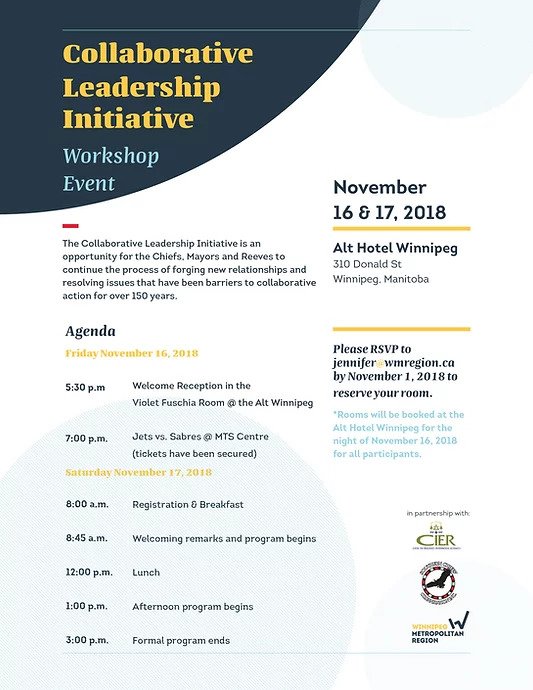CLI Projects


November 16-17, 2018: Meeting 3 – Envisioning the Future
Location : Alt Hotel, 310 Donald St, Winnipeg
Presenting Experts:
André Le Dressay, Director, Fiscal Realities Economists and Director, Tulo Centre of Indigenous Economics;
C.T. (Manny) Jules, Chief Commissioner, First Nations Tax Commission.
Robert Sandford, United Nations University Institute for Water, Environment and Health.
At the third meeting, the leaders considered ways forward. They explored the special and unique mix of assets in the region and how they could work together, as governments, to redefine what could be accomplished.
The leaders recommitted to advancing the CLI, exploring economic opportunities, enhancing stewardship activities, and improving the quality of life for all through the principles of a circular economy.
Winnipeg Jets Game
That night, the leaders cheered on the Winnipeg Jets together.
See the Meeting news release here.
Presentations
André Le Dressay
Increasing the Benefits of Treaty Land Entitlements in Manitoba
C.T. (Manny) Jules
Realizing TLE Potential in Winnipeg Region
Laren Bill
Opportunities in Treaty Land Entitlement Land in Manitoba
Merrell-Ann Phare
Collaborative Leadership Initiative: Envisioning the Future
Robert Sanford
Learning from the Burning: Understanding the Urgency











